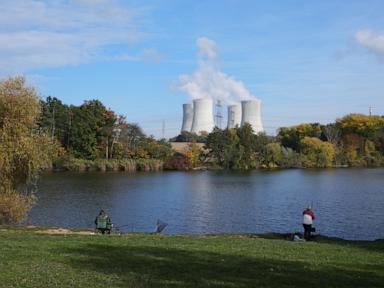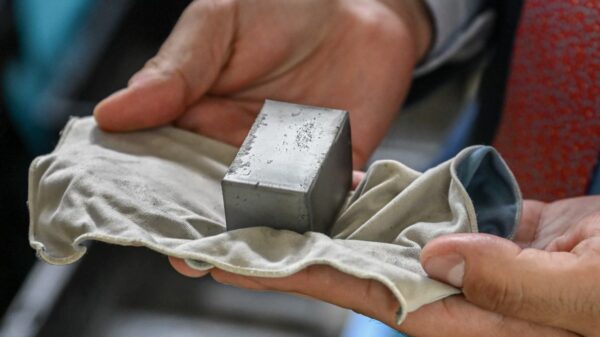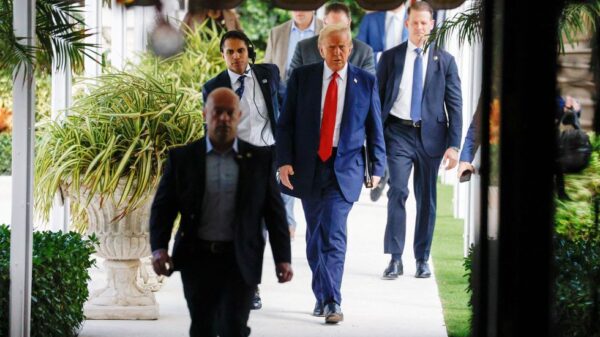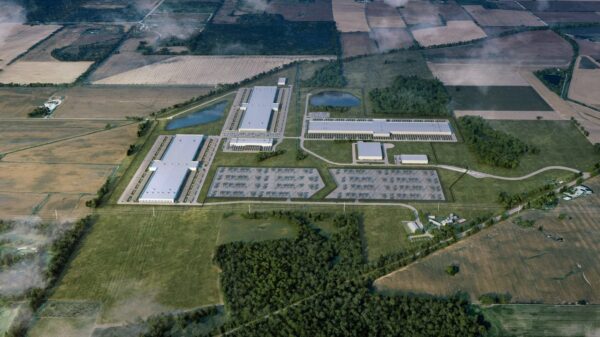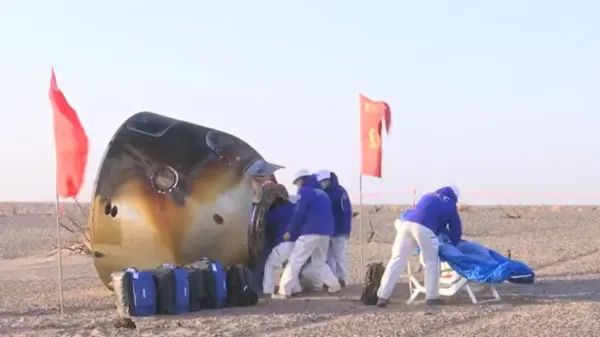The Czech Republic is advancing its energy strategy with a significant investment of $19 billion aimed at expanding its nuclear capabilities. The initiative focuses on the construction of two new reactors at the Dukovany Nuclear Plant, which is anticipated to double the country’s nuclear output and reduce its reliance on fossil fuels.
Construction activities are already underway, with mobile drilling rigs conducting geological surveys up to 140 meters below ground to assess the site’s suitability for this ambitious project. The new reactors, each expected to produce over 1,000 megawatts, will complement the existing four reactors at Dukovany, which were built in the 1980s.
The contract for this project has been awarded to South Korea’s KHNP, which outbid France’s EDF. The deal also includes an option for two additional reactors at the Temelín Nuclear Plant. According to Petr Závodský, the chief executive of the Dukovany project, “Nuclear will generate between 50% and 60% around 2050 in the Czech Republic, or maybe slightly more.”
Transitioning to Nuclear Power
The Czech government views this nuclear expansion as essential for transitioning away from fossil fuels, ensuring stable energy supplies, and meeting stringent emission targets. Závodský emphasized that robust demand for electricity, driven by data centers and electric vehicles, necessitates increased nuclear generation.
Interest in nuclear energy is resurging across Europe, particularly as countries face rising energy demands and deadlines to reduce carbon emissions. Nuclear power, while generating waste, does not produce greenhouse gases like carbon dioxide, which are major contributors to climate change. The European Union has recognized nuclear energy as a viable component of sustainable economic activities, facilitating financing for projects like the Czech expansion.
This renewed focus on nuclear energy comes as Belgium and Sweden reverse their decisions to phase out nuclear power. Other nations, including Denmark and Italy, are reconsidering their nuclear strategies. Poland is set to join the ranks of nuclear-friendly countries in the EU after signing an agreement with Westinghouse to build three nuclear units.
Strategic Partnerships and Financial Backing
The CEZ Group, the dominant power company in the Czech Republic, in which the government holds a 70% stake, is collaborating with Rolls-Royce SMR to develop small modular reactors. The government plans to secure a loan for the Dukovany project that CEZ will repay over 30 years, and it will guarantee a stable revenue stream from electricity production for 40 years.
Závodský expressed confidence in the project’s prospects, stating, “We’re in a good position to argue that we won’t be able to do without new nuclear units.” Currently, approximately 40% of the country’s electricity is generated from nuclear power, with an equal share coming from coal, highlighting the urgent need to phase out coal generation.
Despite the clear benefits of the nuclear expansion, financing uncertainties have delayed progress in the past. In 2014, CEZ canceled a tender for additional reactors at the Temelín plant due to a lack of financial guarantees from the government. The exclusion of Russian and Chinese firms from the Dukovany tender, prompted by security concerns following the Kremlin’s invasion of Ukraine, has also shaped the current landscape.
CEZ has reached agreements with Westinghouse and France’s Framatome to ensure a reliable supply of nuclear fuel, reducing the country’s previous dependence on Russian resources. The contract with KHNP secures fuel supplies for a decade.
Public opinion in the Czech Republic largely supports nuclear energy; however, there are dissenting voices. Environmental groups like Friends of the Earth argue that nuclear energy is too costly and advocate for investing in alternative energy sources instead. Additionally, the nation still lacks a permanent solution for the storage of spent nuclear fuel.
The Dukovany and Temelín plants are situated close to the Austrian border, a country that has historically opposed nuclear energy since the 1986 Chernobyl disaster. Austria’s skepticism remains strong, as evidenced by its lower house of Parliament previously rejecting plans for small modular reactors in the Czech Republic.
As the Czech Republic embarks on this substantial nuclear expansion, the implications for energy policy, environmental impact, and regional relations will be closely monitored both domestically and internationally.







